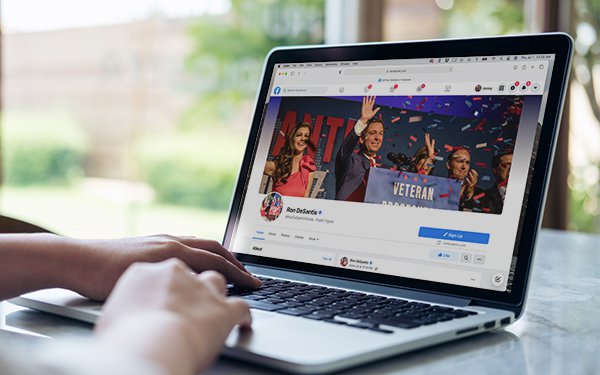
A federal judge has struck down the bulk of a new
Florida law that would have imposed sweeping restrictions on social media companies' ability to moderate content on their platforms.
In a 31-page order issued late Wednesday, U.S. District
Court Judge Robert Hinkle in Tallahassee said large portions of the law, which was slated to take effect July 1, likely violate the First Amendment.
“The legislation now at issue was an
effort to rein in social-media providers deemed too large and too liberal,” he wrote. “Balancing the exchange of ideas among private speakers is not a legitimate governmental
interest.”
Among other provisions, the law (SB 7072) would have subjected social media companies to fines of
$250,000 per day for “deplatforming” candidates for statewide office, and $25,000 per day for other offices. (The bill defines deplatforming as banning a user for more than 14 days, or
permanently deleting the users' account.)
advertisement
advertisement
Another part of the bill would have prohibited social media companies from “censoring,” “deplatforming” or “shadow
banning” journalistic enterprises, based on content.
The bill exempts companies that own large theme parks in the state -- including Comcast (which owns Universal Orlando) and Disney
(owner of Walt Disney World).
In late May, NetChoice and Computer & Communications Industry Association -- whose members include Amazon, Google, Facebook, TikTok and Twitter
-- sued to block enforcement.
The groups argued
the law violates the First Amendment for numerous reasons, including that it interferes with private companies' editorial decisions. The organizations also contended that Section 230 of the
Communications Decency Act -- which protects websites from liability for content moderation decisions -- overrides the measure.
Additionally, the industry organizations argued that the law's
exception for theme parks “renders the Act fatally underinclusive.”
Florida's Republican governor, Ron DeSantis, called for a crackdown on tech companies earlier this year,
shortly after Facebook, YouTube and Twitter banned former President Trump following the January 6 riot at the Capitol.
DeSantis said he wanted to combat “censorship” of
conservatives by tech companies -- despite a lack of empirical evidence that tech companies disproportionately suppress conservative views.
The governor repeated his criticisms of the tech
industry when he signed the legislation in May.
“Silicon Valley is acting as a council of censors,” he said at the time, adding that tech companies “use shadow banning and
secret algorithms to shape debates and control the flow of information.”
Hinkle said in his order that allowing Florida to enforce the restrictions on content moderation would subject
social media companies to “irreparable injury.”
“If a preliminary injunction is not issued, the plaintiffs’ members will sometimes be compelled to speak and will
sometimes be forbidden from speaking, all in violation of their editorial judgment and the First Amendment,” he wrote. “This is irreparable injury.”
One part of the law that
Hinkle didn't block allows Florida to prohibit state agencies from contracting with a social media platform accused of violating antitrust law.
The judge said that portion of the law
“raises issues under both state and federal law, but ... poses no threat of immediate, irreparable harm to social media platforms.”